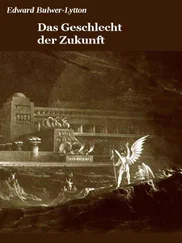Edward Bulwer-Lytton
Rienzi, Last of the Roman Tribunes
e-artnow, 2021
Contact: info@e-artnow.org
EAN: 4064066383916
Preface to the First Edition of Rienzi.
Preface to the Present Edition, 1848.
Book I. The Time, The Place, and The Men.
Chapter I. The Brothers.
Chapter II. An Historical Survey—not to Be Passed Over, Except by
Chapter III. The Brawl.
Chapter IV. An Adventure.
Chapter V. The Description of a Conspirator, and the Dawn of the Conspiracy.
Chapter VI. Irene in the Palace of Adrian di Castello.
Chapter VII. Upon Love and Lovers.
Chapter VIII. The Enthusiastic Man Judged by the Discreet Man.
Chapter IX. “When the People Saw this Picture, Every One Marvelled.”
Chapter X. A Rough Spirit Raised, Which May Hereafter Rend the Wizard.
Chapter XI. Nina di Raselli.
Chapter XII. The Strange Adventures that Befel Walter de Montreal.
Book II. The Revolution
Chapter I. The Knight of Provence, and his Proposal.
Chapter II. The Interview, and the Doubt.
Chapter III. The Situation of a Popular Patrician in Times of Popular Discontent.—Scene of the Lateran.
Chapter IV. The Ambitious Citizen, and the Ambitious Soldier.
Chapter V. The Procession of the Barons.—The Beginning of the End.
Chapter VI. The Conspirator Becomes the Magistrate.
Chapter VII. Looking after the Halter when the Mare is Stolen.
Chapter VIII. The Attack—the Retreat—the Election—and the Adhesion.
Book III. The Freedom Without Law.
Chapter I. The Return of Walter de Montreal to his Fortress.
Chapter II. The Life of Love and War—the Messenger of Peace—the Joust.
Chapter III. The Conversation between the Roman and the Provencal—Adeline’s History—the Moonlit Sea—the Lute and the Song.
Book IV. The Triumph and the Pomp.
Chapter I. The Boy Angelo—the Dream of Nina Fulfilled.
Chapter II. The Blessing of A Councillor Whose Interests and Heart Are Our Own.—the Straws Thrown Upward—Do They Portend A Storm.
Chapter III. The Actor Unmasked.
Chapter IV. The Enemy’s Camp.
Chapter V. The Night and its Incidents.
Chapter VI. The Celebrated Citation.
Chapter VII. The Festival.
Book V. The Crisis.
Chapter I. The Judgment of the Tribune.
Chapter II. The Flight.
Chapter III. The Battle.
Chapter IV. The Hollowness of the Base.
Chapter V. The Rottenness of the Edifice.
Chapter VI. The Fall of the Temple.
Chapter VII. The Successors of an Unsuccessful Revolution—Who is to Blame—the Forsaken one or the Forsakers?
Book VI. The Plague.
Chapter 1. The Retreat of the Lover.
Chapter II. The Seeker.
Chapter III. The Flowers Amidst the Tombs.
Chapter IV. We Obtain What We Seek, and Know it Not.
Chapter V. The Error.
Book VII. The Prison.
Chapter I. Avignon.—The Two Pages.—The Stranger Beauty.
Chapter II. The Character of a Warrior Priest—an Interview—the Intrigue and Counter-intrigue of Courts.
Chapter III. Holy Men.—Sagacious Deliberations.—Just Resolves.—And Sordid Motives to All.
Chapter IV. The Lady and the Page.
Chapter V. The Inmate of the Tower.
Chapter VI. The Scent Does Not Lie.—The Priest and the Soldier.
Chapter VII. Vaucluse and its Genius Loci.—Old Acquaintance Renewed.
Chapter VIII. The Crowd.—The Trial.—The Verdict.—The Soldier and the Page.
Chapter IX. Albornoz and Nina.
Book VIII. The Grand Company.
Chapter I. The Encampment.
Chapter II. Adrian Once More the Guest of Montreal.
Chapter III. Faithful and Ill-fated Love.—The Aspirations Survive the Affections.
Book IX. The Return.
Chapter I. The Triumphal Entrance.
Chapter II. The Masquerade.
Chapter III. Adrian’s Adventures at Palestrina.
Chapter IV. The Position of the Senator.—The Work of Years.—The Rewards of Ambition.
Chapter V. The Biter Bit.
Chapter VI. The Events Gather to the End.
Book X. The Lion of Basalt.
Chapter I. The Conjunction of Hostile Planets in the House of Death.
Chapter II. Montreal at Rome.—His Reception of Angelo Villani.
Chapter III. Montreal’s Banquet.
Chapter IV. The Sentence of Walter de Montreal.
Chapter V. The Discovery.
Chapter VI. The Suspense.
Chapter VII. The Tax.
Chapter VIII. The Threshold of the Event.
Chapter The Last. The Close of the Chase.
PREFACE TO THE FIRST EDITION OF RIENZI.
Table of Contents
I began this tale two years ago at Rome. On removing to Naples, I threw it aside for “The Last Days of Pompeii,” which required more than “Rienzi” the advantage of residence within reach of the scenes described. The fate of the Roman Tribune continued, however, to haunt and impress me, and, some time after “Pompeii” was published, I renewed my earlier undertaking. I regarded the completion of these volumes, indeed, as a kind of duty;—for having had occasion to read the original authorities from which modern historians have drawn their accounts of the life of Rienzi, I was led to believe that a very remarkable man had been superficially judged, and a very important period crudely examined. (See Appendix, Nos. I and II.) And this belief was sufficiently strong to induce me at first to meditate a more serious work upon the life and times of Rienzi. (I have adopted the termination of Rienzi instead of Rienzo, as being more familiar to the general reader.—But the latter is perhaps the more accurate reading, since the name was a popular corruption from Lorenzo.) Various reasons concurred against this project—and I renounced the biography to commence the fiction. I have still, however, adhered, with a greater fidelity than is customary in Romance, to all the leading events of the public life of the Roman Tribune; and the Reader will perhaps find in these pages a more full and detailed account of the rise and fall of Rienzi, than in any English work of which I am aware. I have, it is true, taken a view of his character different in some respects from that of Gibbon or Sismondi. But it is a view, in all its main features, which I believe (and think I could prove) myself to be warranted in taking, not less by the facts of History than the laws of Fiction. In the meanwhile, as I have given the facts from which I have drawn my interpretation of the principal agent, the reader has sufficient data for his own judgment. In the picture of the Roman Populace, as in that of the Roman Nobles of the fourteenth century, I follow literally the descriptions left to us;—they are not flattering, but they are faithful, likenesses.
Preserving generally the real chronology of Rienzi’s life, the plot of this work extends over a space of some years, and embraces the variety of characters necessary to a true delineation of events. The story, therefore, cannot have precisely that order of interest found in fictions strictly and genuinely dramatic, in which (to my judgment at least) the time ought to be as limited as possible, and the characters as few;—no new character of importance to the catastrophe being admissible towards the end of the work. If I may use the word Epic in its most modest and unassuming acceptation, this Fiction, in short, though indulging in dramatic situations, belongs, as a whole, rather to the Epic than the Dramatic school.
I cannot conclude without rendering the tribute of my praise and homage to the versatile and gifted Author of the beautiful Tragedy of Rienzi. Considering that our hero be the same—considering that we had the same materials from which to choose our several stories—I trust I shall be found to have little, if at all, trespassed upon ground previously occupied. With the single exception of a love-intrigue between a relative of Rienzi and one of the antagonist party, which makes the plot of Miss Mitford’s Tragedy, and is little more than an episode in my Romance, having slight effect on the conduct and none on the fate of the hero, I am not aware of any resemblance between the two works; and even this coincidence I could easily have removed, had I deemed it the least advisable:—but it would be almost discreditable if I had nothing that resembled a performance possessing so much it were an honour to imitate.
Читать дальше












